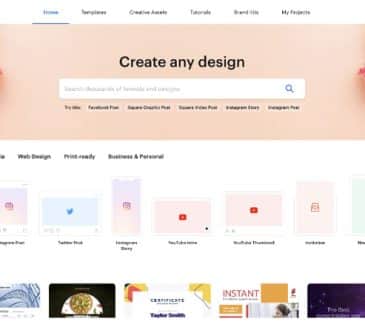3 Ways Technology Is Personalizing Healthcare

Healthcare is moving away from the broad approach of the past and using technology to create more personalized experiences throughout care. It’s ushering in the newfound ability to deliver precise diagnoses and develop targeted therapies based on a factor inherent within everyone: differences in genes, health, lifestyles, environments, and more. By embracing individualized treatment approaches, healthcare organizations are realizing their long-standing goal of enhancing patient outcomes and setting a new standard for excellence in medical care.
The healthcare industry has made great strides in personalizing patient care models, where physicians treat patients as unique individuals with unique health histories. With greater emphasis on value-based care, healthcare organizations now see a more robust business case to personalize care efforts. After all, such an approach improves patient outcomes, as physicians can better provide more precise diagnoses and targeted therapies.
Data has certainly played a role in helping healthcare organizations deliver more personalized healthcare. With the amount of health-related data now available, it’s become much easier to unlock valuable insights into health and disease. However, data is just the first step. Healthcare digitalization and advances in medical technology allow healthcare professionals to dig into this data and uncover patterns that help identify conditions and someone’s risk of developing a given disease.
While the number of medical technologies continues to grow, there are a few that are having a significant impact on personalized healthcare, including the following:
Advances in precision medicine.
Just because a medication is proven to work in treating a given condition doesn’t always mean it will benefit everyone. Precision medicine hopes to change all that, moving from the “one-size-fits-all” approach to patient care to one that considers differences in genes, lifestyles, and environments. However, the objective of precision medicine isn’t solely focused on targeted drug therapies — though that, in and of itself, is already a vast improvement in personalizing healthcare. New sequencing technologies also make disease diagnosis more predictive, proactive, and precise, allowing physicians to tailor preventive measures to the individual.
Advances in measuring DNA methylation, for example, are already affecting patient care models, helping personalize healthcare even further than expected. “DNA methylation technology and its applications are some of the most powerful advances in precision medicine over the past couple of years, representing an advancement over standalone genetics-based predictors,” explains Dr. William P. Stanford, Chief Medical Officer at the Beverly Hills Institute for Precision Medicine and Co-Founder of Biography Health. “DNA methylation involves chemical changes to the DNA that occur throughout life in response to normal biology, aging, and environmental exposures, such as diet, exercise, sleep, stress, and other lifestyle factors.”
These changes to DNA can indicate a risk for the presence of cancer, diabetes, heart disease, and a host of other disease states. “Your underlying genetic variation, together with your epigenetic methylation changes empower analysis of your current disease risk,” adds Dr. Stanford. “Analyzing these patterns over time provides a method to detect responses to an intervention to improve health. In short, methylation patterns are excellent indicators as they directly represent changes corresponding with disease manifestation.” This means early detection is a greater possibility, and since many treatments are often more effective during the early stages of an illness, it can significantly improve patient outcomes.
Wearable devices.
Wearable and remote monitoring technologies have become valuable tools for not only capturing real-time data and managing patient conditions but also personalizing healthcare. Smart watches, for one, can provide a great deal of information on an individual’s heart rate, blood pressure, blood oxygen levels, and other vital signs, allowing for prompt analysis that could help detect potential health issues before they become serious problems. The same can be said for wearable biosensors, which convert biological signals into data, for lack of a better term, that can be transmitted to another device to help monitor any conditions.
The continuous glucose monitoring (CGM) device is a perfect example of a biosensor that, as the name suggests, continuously monitors blood glucose in the fatty layer under the skin. The CGM then sends signals to a smartphone or remote monitoring device to help in the management of diabetes. In fact, advances in this technology have led to a “closed-loop system,” where the CGM sends signals directly to an insulin pump that delivers the right amount of insulin to keep glucose at the ideal level. It basically automates the process for the individual patient.
Implantable cardioverter defibrillators, pulse oximeters, photodiode sensors, and ECG monitors are just a few of the other remote monitoring devices commonly used to track and manage an individual patient’s health status. When used with genetic profiling, each can help personalize patient care even further.
Artificial intelligence and machine learning.
It shouldn’t come as a surprise that both artificial intelligence (AI) and machine learning (ML) are core to the greater personalization of healthcare. The technologies have already been essential to drug discovery. The COVID-19 vaccine is a testament to that, with Pfizer using AI throughout development. By leveraging patient data on past diseases and treatments, AI and ML have also shown great promise in their ability to forecast future outcomes based on an individual’s symptoms, health status, etc. Like precision medicine, these insights allow physicians to tailor treatment plans to the individual and improve patient outcomes.
AI has been particularly important in improving clinical decision support (CDS) tools throughout the healthcare industry — mainly for diagnostic and treatment recommendations. It’s even been integrated into routine workflows, alerting physicians of patients who meet a specific profile and then offering recommendations at the point of care. Researchers at Mass General Brigham have discovered that ChatGPT demonstrates a 72% accuracy rate in clinical decision-making across various medical specialties and stages of patient care. Furthermore, the AI tool exhibits a 77% success rate in reaching a conclusive diagnosis. These findings strongly support the integration of this technology as an aid in clinical decision-making for healthcare professionals, positioning it as a valuable assistant rather than a substitute.
St. Michael’s Hospital in Toronto began leveraging AI in 2020 with impressive results. Trained on historical data, the AI model uses age, biological sex, and vital signs to predict which patients are at the most risk of escalating to the ICU. The same model also aids in determining which patients are at most risk of death. Due to the staff’s ability to focus on those patients most in need of care, AI reduced ICU escalations and fatalities by more than 20 percent.
Healthcare is moving away from the broad approach of the past and using technology to create more personalized experiences throughout care. It’s ushering in the newfound ability to deliver precise diagnoses and develop targeted therapies based on a factor inherent within everyone: differences in genes, health, lifestyles, environments, and more. By embracing individualized treatment approaches, healthcare organizations are realizing their long-standing goal of enhancing patient outcomes and setting a new standard for excellence in medical care.
Have you read?
Biggest banks in the world, as measured by total assets, 2023.
Highest-paid CEOs among Russell 3000 companies, 2023.
These Are the highest-paid CEOs among S&P 500 companies, 2023.
Ranked: The 50 Richest Celebrity Couples in the World, 2023.
The world’s wealthiest 300 cities, 2023.
Global Happiness Index: Happiest Countries In The World In 2023.
Add CEOWORLD magazine to your Google News feed.
Follow CEOWORLD magazine headlines on: Google News, LinkedIn, Twitter, and Facebook.
This report/news/ranking/statistics has been prepared only for general guidance on matters of interest and does not constitute professional advice. You should not act upon the information contained in this publication without obtaining specific professional advice. No representation or warranty (express or implied) is given as to the accuracy or completeness of the information contained in this publication, and, to the extent permitted by law, CEOWORLD magazine does not accept or assume any liability, responsibility or duty of care for any consequences of you or anyone else acting, or refraining to act, in reliance on the information contained in this publication or for any decision based on it.
Copyright 2024 The CEOWORLD magazine. All rights reserved. This material (and any extract from it) must not be copied, redistributed or placed on any website, without CEOWORLD magazine' prior written consent. For media queries, please contact: info@ceoworld.biz
SUBSCRIBE NEWSLETTER








